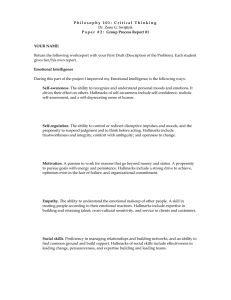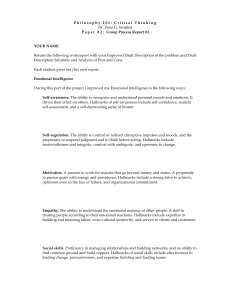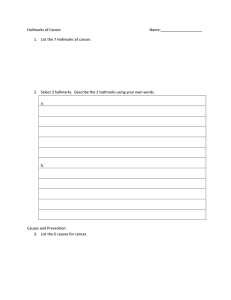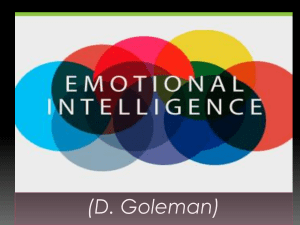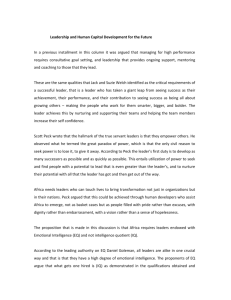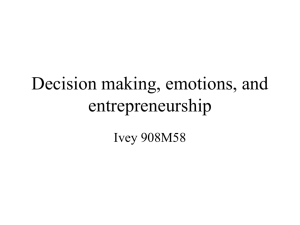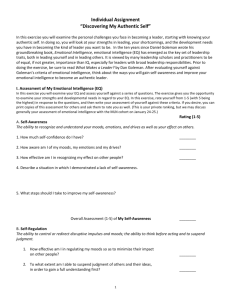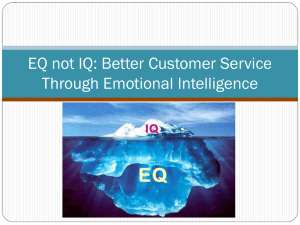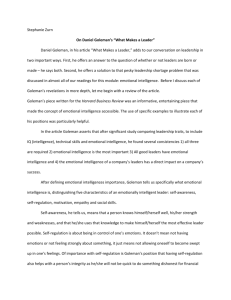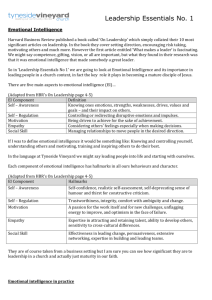Emotional Intelligence - Central Methodist University
advertisement
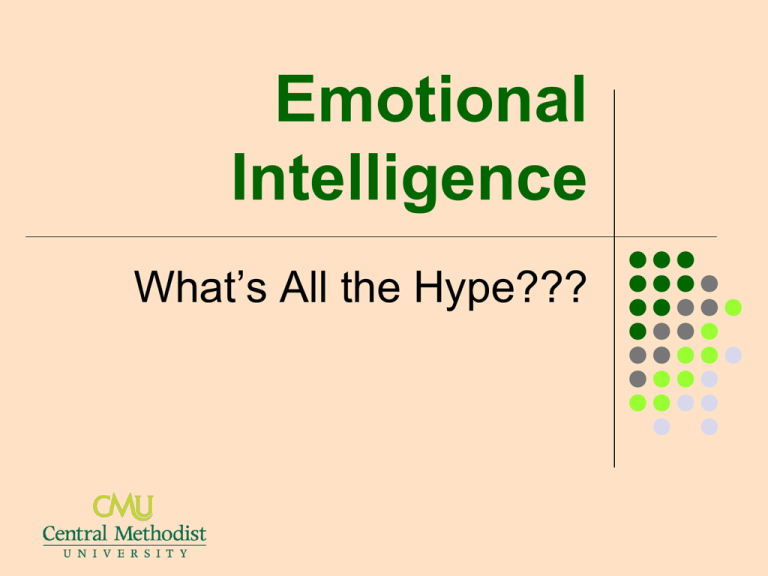
Emotional Intelligence What’s All the Hype??? When did EI/EQ become so important? Robert Thorndike (1937) Peter Salovey & John Mayer (1990) Social Intelligence Coined the term “emotional intelligence” Daniel Goleman (1995) Emotional Intelligence Why is EQ important? IQ is too narrow It ignores essential behavioral and character elements. Success is not necessarily determined by IQ alone. Goleman says 20% of success is determined by IQ. There are wider areas of emotional intelligence that dictate and enable how successful we are. Let’s Take the Test Score Yourself As Follows Question # Answer A Answer B Answer C Answer D 1 20 20 20 0 2 0 20 0 0 3 20 0 0 0 4 0 0 20 0 5 0 0 20 0 6 0 5 5 20 7 20 0 0 0 8 0 20 0 0 9 0 5 0 20 10 0 20 0 0 Where Do You Rank? 200—Emotional Genius 175—Empathetic Mastermind 150—Ghandi 125—Freud 100—Average 75—Have you tried psychotherapy? 50—Emotionally challenged 25—Emotional Neanderthal Goleman’s 5 Components of Emotional Intelligence Self Awareness Self Regulation Motivation Empathy Social Skills Self Awareness • The ability to recognize and understand personal moods and emotions and drives, as well as their effect on others. Hallmarks of self-awareness include self-confidence, realistic self-assessment, and a selfdeprecating sense of humor. Selfawareness depend on one's ability to monitor one's own emotional state and to correctly identify and name one’s emotions. Self Regulation • • • The ability to control or redirect disruptive impulses and moods, and the propensity to suspend judgment and to think before acting. Hallmarks include trustworthiness and integrity; comfort with ambiguity; and openness to change. Emotional High-jacking Video Motivation • A passion to work for reasons that go beyond money and status, which are external rewards. A propensity to pursue goals with energy and persistence. Hallmarks include a strong drive to achieve, optimism even in the face of failure, and organizational commitment. Empathy The ability to understand the emotional makeup of other people. A skill in treating people according to their emotional reactions. Hallmarks include expertise in building and retaining talent, cross-cultural sensitivity, and service to clients and customers. Social Skills Proficiency in managing relationships and building networks, and an ability to find common ground and build rapport. Hallmarks of social skills include effectiveness in leading change, persuasiveness, and expertise building and leading teams. So what if I don’t have it? EQ can be continually developed It involves skills that can be practiced and learned
